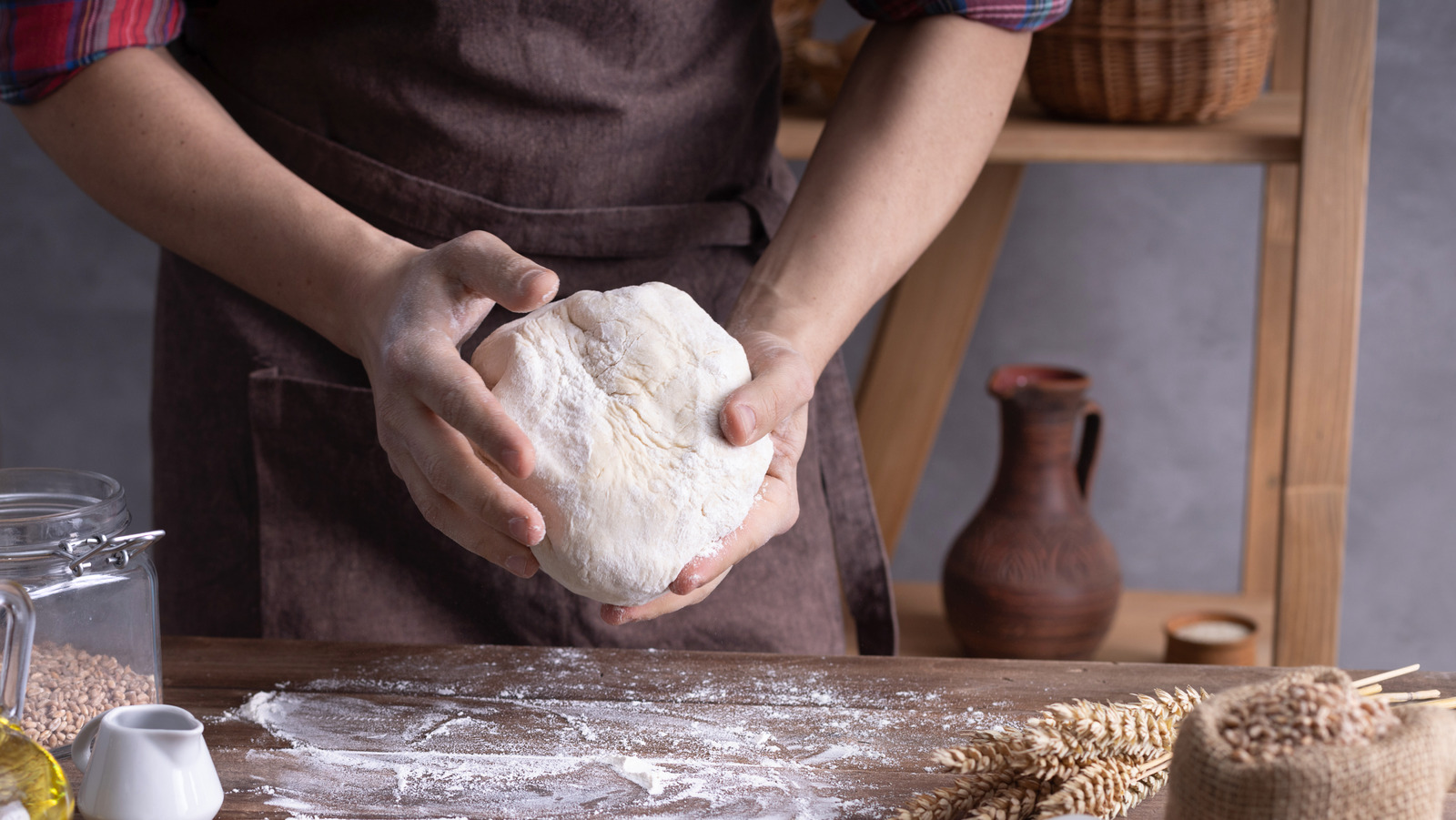Introduction:
Kneading is a fundamental step in bread-making, an act of culinary alchemy that transforms humble dough into a crusty, flavorful masterpiece. Yet, amidst the rhythm of kneading, it’s easy to get carried away, resulting in over-kneaded dough, a predicament that can threaten the very integrity of your bread. This guide will delve into the causes and consequences of over-kneading and offer practical strategies to salvage the situation, empowering bakers to navigate this doughy dilemma with finesse.
Understanding the Gluten Network: A Delicate Balance
Dough is a complex matrix, its properties largely dictated by the protein gluten. When dough is kneaded, gluten strands interact to form a network, contributing to the dough’s elasticity and strength. However, excessive kneading can result in an overly developed gluten network, creating a tough, rubbery dough that resists rising and yields dense, unappetizing bread.
Consequences of Over-Kneading: A Tale of Missed Opportunities
Over-kneading unleashes a chain of undesirable consequences that compromise the quality of your bread. The overworked gluten strands become rigid, hindering the dough’s ability to expand and facilitating airflow. Consequently, the resulting bread often suffers from poor volume and a close-knit crumb structure, devoid of the airy loftiness that defines a well-made loaf. Additionally, over-kneading can impair the dough’s fermentation, resulting in bread with a lackluster flavor profile.
Redeeming the Dough: Techniques for Troubleshooting
While over-kneaded dough may seem destined for the compost pile, all is not lost. With the right techniques, it’s possible to rescue the situation and coax your dough back to life.
-
Proofing Patience: A Second Chance to Rise
Embrace the power of time by giving your over-kneaded dough an extended proofing session. This allows the dough to rest and relax, providing gluten strands an opportunity to relax. You may need to extend the proofing time by several hours or even overnight. Patience is the key to allowing the dough to regain its potential.
Image: www.tastingtable.com -
Warm Water: A Soothing Touch
Immerse your over-kneaded dough in a gentle bath of warm water for 10-15 minutes. The warmth of the water will help relax the gluten strands, restoring their pliability and making the dough more workable. -
Autolyse: Nature’s Healing Hand
Autolyse, the process of hydrating flour and allowing it to rest before kneading, can also work wonders on over-kneaded dough. By simply mixing flour and water and letting it rest for 30 minutes or more, you can help the dough rebalance itself and develop a stronger gluten network. -
Add Water: A Liquid Lifeline
If other methods have proved insufficient, consider adding small increments of water to the over-kneaded dough while kneading. Gradually add water until the dough reaches a soft and pliable consistency, ensuring not to over-hydrate it. -
French Kneading: A Gentle Persuasion
French kneading, a technique that involves slapping and folding the dough, can prove effective in rehabilitating over-kneaded dough. Instead of vigorous kneading, focus on gentle coaxing, allowing the dough to stretch and relax between folds.

Image: www.bobsredmill.com
How To Fix Over Kneaded Dough
Conclusion: A Lesson Learned in Dough Mastery
Over-kneading dough is a common mishap that can be frustrating for bakers of all levels. However, by understanding the science behind gluten formation and employing the techniques outlined in this guide, you can learn to identify and correct over-kneaded dough, transforming it into a bread-worthy creation. Remember, baking is an art that embraces imperfections, and even a seemingly ruined batch of dough can be a valuable learning experience. So don’t despair; embrace the lessons learned and continue kneading with confidence, knowing that redemption is always possible in the world of dough.







